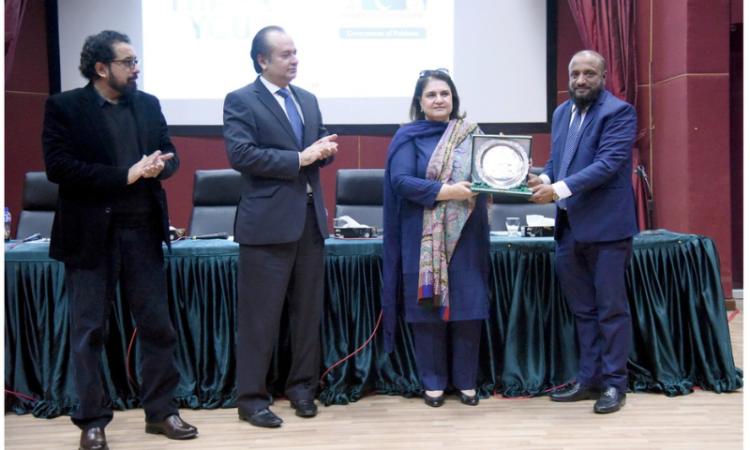Islamabad, January 1, 2025: The Benazir Income Support Programme (BISP) headquarters hosted a delegation of Probationary Officers from the 52nd Common Training Programme, offering them an in-depth look at BISP’s role in supporting vulnerable communities and driving socio-economic development in Pakistan.
Chairperson of BISP, Senator Rubina Khalid, welcomed the delegation, congratulating the officers on their journey toward becoming the nation’s future policymakers. She encouraged them to act as ambassadors for BISP, spreading awareness of its contributions to national progress.
In a landmark announcement during the session, Senator Rubina Khalid revealed an increase in the Benazir Kafaalat quarterly stipend from Rs. 10,500 to Rs. 13,500, effective immediately. Reflecting on the program’s origins, she credited Shaheed Mohtarma Benazir Bhutto for conceiving the vision during her exile in Dubai, saying, “Through BISP, the poor women of Pakistan have gained recognition, identity, and dignity—a legacy furthered by President Asif Ali Zardari.”
The chairperson also highlighted BISP’s commitment to transparency and empowerment through biometric payment verification systems and skill development programs. “With a global demand for skilled labor, we simply need to connect the dots using available resources,” she said.
Secretary BISP, Amer Ali Ahmad, provided the delegation with a detailed overview of BISP’s core initiatives, including Benazir Kafaalat, Benazir Nashonuma, Benazir Taleemi Wazaif, and the National Socio-Economic Registry (NSER) Database. He outlined innovative measures like the Nutrition Program for Adolescent Girls and the use of Mobile Registration Vehicles to reach remote areas.
Amer Ali Ahmad also introduced a new payment system designed to enhance transparency and accessibility. Under this model, six banks have been engaged, and the country divided into 15 clusters to facilitate smooth payment distribution. Beneficiary women will now have the option to choose their preferred bank, thanks to ongoing consultations with the State Bank of Pakistan. He also announced the launch of a BISP Savings Scheme and a dedicated Call Center to address complaints and promote financial literacy among beneficiaries.
Dr. Muhammad Tahir Noor, Additional Secretary BISP, highlighted the program’s effective targeting mechanisms and its swift responses during national crises, including the COVID-19 pandemic and recent floods, ensuring timely support to affected communities.
The visit concluded with an interactive session where Senator Khalid and Amer Ali Ahmad addressed questions from the Probationary Officers. Shields were presented to Senator Khalid, Amer Ali Ahmad, and Dr. Tahir Noor on behalf of the Civil Services Academy as a gesture of gratitude. Ms. Shehar Bano expressed heartfelt thanks for the insights and comprehensive briefing.
This visit not only provided future policymakers with valuable exposure to BISP’s transformative initiatives but also underscored the program’s enduring commitment to empowering marginalized communities across Pakistan.








